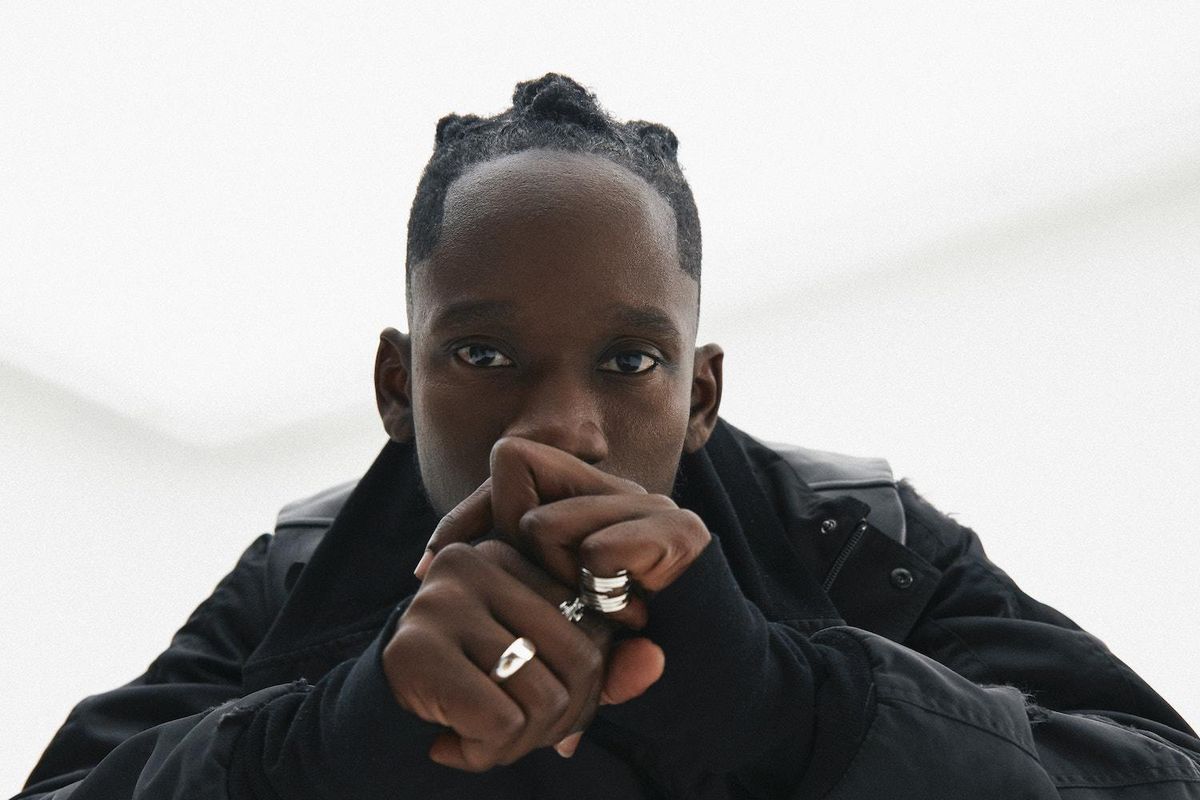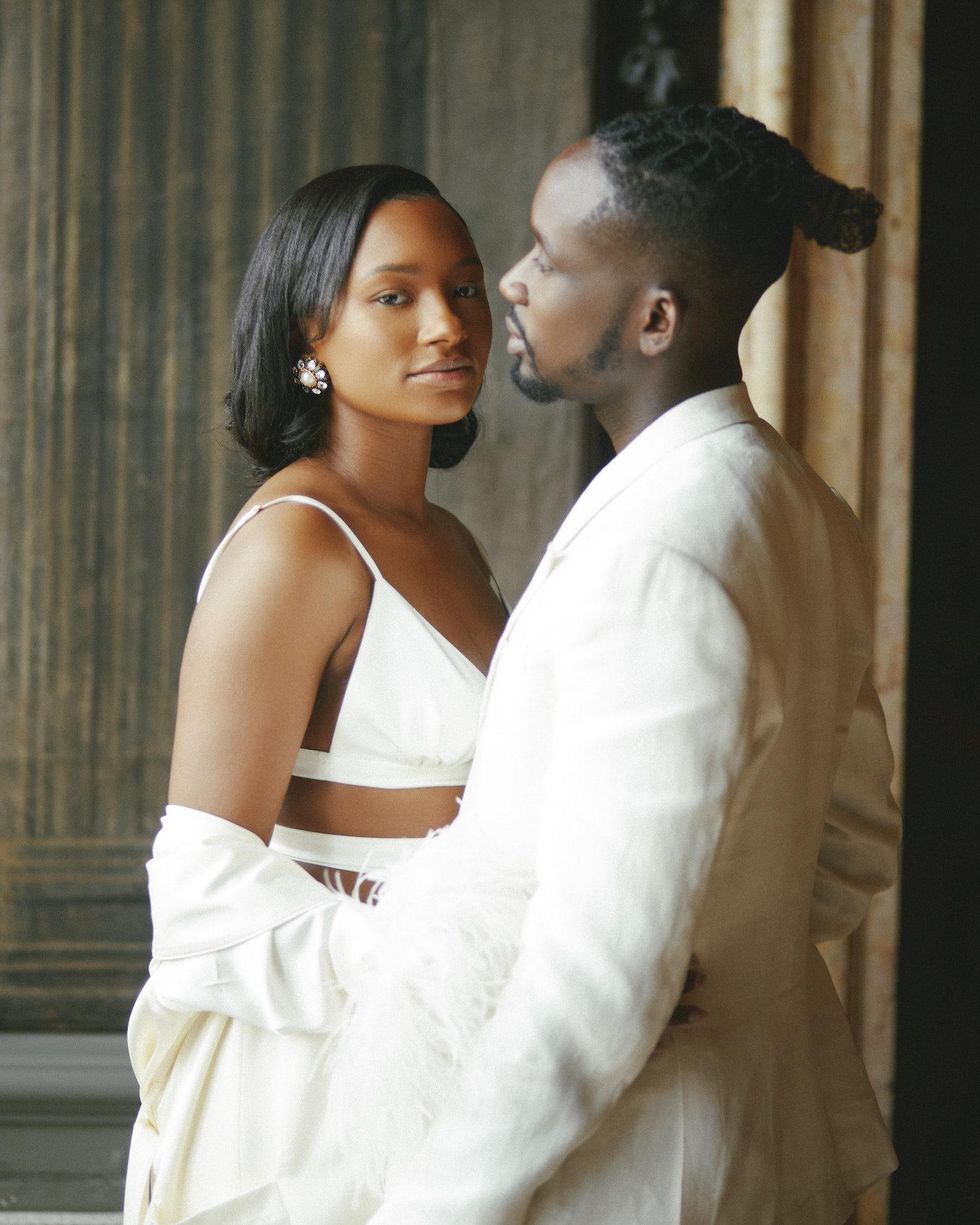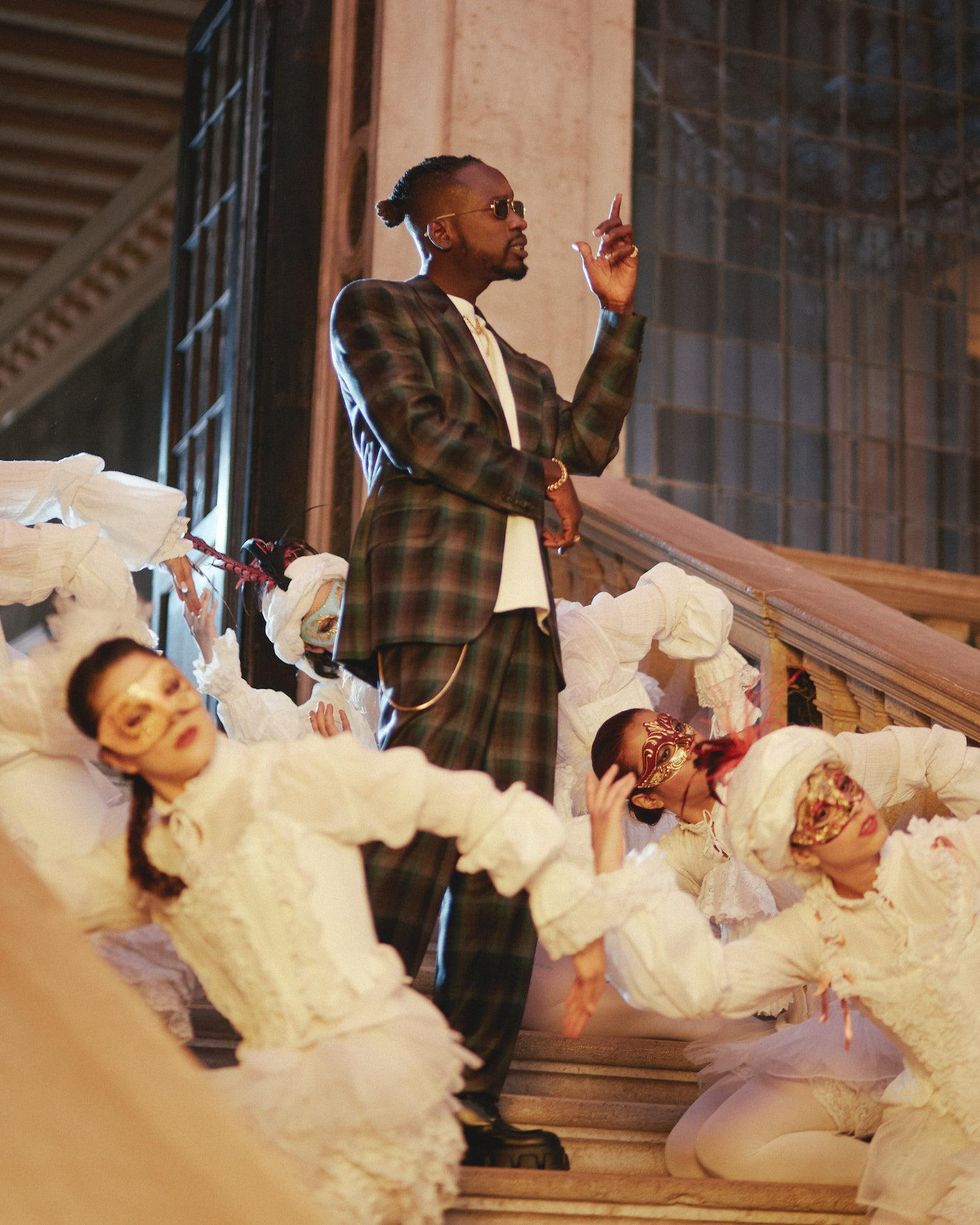For Mr Eazi, This Is Just the Beginning
Written by ABR on 14/06/2022

Love is a powerful universal force. It’s powerful enough to change a man, his thoughts and the way he sees life generally. It’s also powerful enough to inspire art, just as it inspired Mr Eazi to make his latest single “Legalize” and, as he has hinted, most of the other songs on his highly-anticipated forthcoming album.
Mr Eazi’s reputation in the African pop culture space is second to none. Beyond the music, he’s been able to successfully paint his image as a serial entrepreneur and an advocate of creative freedom for young, emerging artists in Africa. He’s been able to achieve the latter through his emPawa Africa company, which he established in 2019 to help young independent African musicians get the best income out of their work and be free to create the kind of music that they want at their own pace and frequency.
“No label or distribution company gives any better deals than emPawa does. You can take that to the bank,” boasts the Banku music pioneer who will be turning 30-years-old this July. “There are a lot of labels and distributors that run operations for music around the world and just have an arm that covers Africa. But that’s not us. We are from Africa, focused on Africa and in Africa.”
Apart from his smash hit records with Nigeria’s Joeboy and multiple collaborations with DJ Neptune, something else that has kept Mr Eazi’s name fresh in the news has been his love life. The singer is engaged to actress Temi Otedola and they host a podcast together. Beyond the podcast, Temi happens to be the inspiration for his “Legalize”‘ song and extensively, his new perception and approach to the concept of love.
“It’s a very personal song, as will be loads of songs on my coming album. The song talks about the relationship between my fiancé and I. It is about the process of asking her to marry me so it’s very personal to me. I felt it would be great to start this project with it. For me, being able to use music as an avenue to tell my personal story is therapy. It is why the song is very therapeutic to me,” he confesses.
In this interview, Mr Eazi talks about “Legalize,” his upcoming album and how he cannot seem to get his mind off a certain Nigerian food combination.
This piece has been edited for length and clarity.
How did the idea to merge art and music in “Legalize” come about?
In the last two years, I have become even more fascinated by contemporary African art and I wanted to be a part of the merger that brings contemporary African art and contemporary African music together.
There’s always something innovative about Mr Eazi. Where do those ideas come from?
I’m bored. I get bored easily so I come up with things to cure my boredom. Exciting, different things. People might refer to these things as innovative, but what drives it is boredom.
Is it serendipity or did you always know that you would someday become as important in African music as you are right now?
I always knew I would be successful at anything I decided to do, be it music or making moimoi and ogi. I thank God. Everyday, I keep thanking God and just pursuing my dreams and meeting good people. The bad people reveal themselves over time and we thank God and we stop working with them. We just keep moving.

What skills from your earlier years as a businessman do you apply to your music?
I’ve always been a hustler. I’m still a hustler. I just keep learning, soaking and doing exciting stuff. I don’t like being put in a box. It’s exciting being in a studio this minute with an emerging artist and then in a boardroom the next minute, and spending the next moments speaking to the Central Bank about a deal. You know, just being able to not be stuck in one box and not be defined by one title. It keeps me going.
What’s there to know about your upcoming debut album?
It’s a very personal one. And like every Mr Eazi project has done in the past, this one too will blow your mind. The authenticity of its stories will have you in a chokehold.
The album was supposed to drop earlier, what caused the delay?
P. Priime! P. Priime came to the studio and it was the first time I was working with him. As we started, it almost seemed like I had started working on another album. So I decided to take more time and work more on the album. And it’s beautiful because it shows freedom. There was no label pursuing me to do things before I was ready and no pressure. If I like, I can push it another one year. It’s a very personal album, the most personal I’ve ever made. So it needs to take its time.

What do you think about the globalization of Afrobeats now that music from Africa seems to be getting the whole world’s attention?
I think it’s just the beginning. We’ll really see what is going on in six to ten years time. These are still the early days. There’ll be more artists, there’ll be more creators, the culture will be bigger, there’ll be a time where global charts everywhere in the world will be filled with music from across Africa. And this is the time to not just be screaming ‘Africa to the world,’ but time to invest and own the ecosystem.
More Africans should own African festivals. If there’s an African artist that runs a festival, all of us should invest in it. Davido, Wizkid, myself, Burna, Fireboy, Joeboy, Buju, Simi, Fave, Liya — everybody should have a percentage in that festival! The distributors, the labels, Universal Africa should be part-owned by African producers. Sarz, Dera, P. Priime, Killertunez, Pheelz, Willis should part-own them. And we have the culture, so it’s an opportunity for us to dictate what happens in and to the space.
What would you say is emPawa’s most important value as a company?
It’s a company that is focused on African music. There are a lot of labels and distributors that run operations for music around the world and just have an arm that covers Africa. But that’s not us. We are from Africa, focused on Africa and in Africa. The company has a great team and the crux of everything is how I’m an African artist and founder of emPawa. As an African artist, I know what every African artist would want, the kind of deal they would love to get—and emPawa is creating such deals for them.
I came from scratch without any godfather. Nobody put me on besides God the Father, so I know what it feels like to be an independent artist with no funds. And I keep learning by the way. I’m in a unique position to know the kind of deal that most independent artists would want. One that gives them economic freedom and creative freedom. At emPawa we advise you, but we never force you to make certain decisions. We won’t tell you to put out music when you don’t want to. You are free to put out music when you want to put out music, with whom you want to put out music and how you want to put the music out. Also, no cap, no label or distro company gives any better deals than we do. You can take that to the bank.

In what special way is emPawa employing technology into music creation and promotion processes?
We basically have our own distribution. That’s all tech. That’s all API integration. Even the promotion and marketing. Right now, we are building what will become the best digital marketing team for African music. It’s all going to be data analysis, following up on the data, following up on web sorting and using the data to inform spend. It can never be too mechanical. If you go with your heart and see something happening, you should be able to follow-up.
When Mr Eazi is not making music or thinking about music business, what else occupies his mind?
I’m always thinking. Recently, it has been ogi and moimoi. When I woke up this morning, it was ogi and moimoi on my mind. Right now, it’s ogi and moimoi. I’m not even lying. I had it three times the other day and I’m just discovering the beauty in that combo. So when people wonder where Mr Eazi is, the truth is that he is busy discovering the secret behind ogi and moimoi.
What’s a normal morning like for Mr Eazi? What’s the first thing you do in the morning?
There’s no typical morning. Except when I’m in Cotonou. I live there. I wake up, get on calls, get on meetings. My businesses are in operations in over 10 African countries with over 400 staff employed across all of them. I do all of that until 2pm when I hit the studio. I do all of that till when I’m tired, go back home to do kickboxing, and then I sleep.
What’s a song you have on repeat right now?
To be honest, my album. That’s all I listen to right now. I don’t listen to anything else. If you’re with me in the car, that’s all you’ll hear. It’s not done, but it’s 80% ready. The only other songs you’ll hear are those sent in by my artists who are working on projects or something. Apart from those, it’s my coming album, really.
What would make Mr Eazi feel fulfilled?
It’s just making something that I’m proud of. I’m more interested in the process than in the destination. Sometimes, the excitement stops when I drop the album. The joy is in the process of making the album. The talking to my team, mixing, recording, sending music to my team — all of those. That’s where the joy is. So I’m proud of this process right now; sending songs to DJ Neptune and DJ Neptune sending it back or not sending it back. Though annoying sometimes, it’s the fun part. More people need to understand that success is really in the process and not always at the destination.



 ABR Group
ABR Group